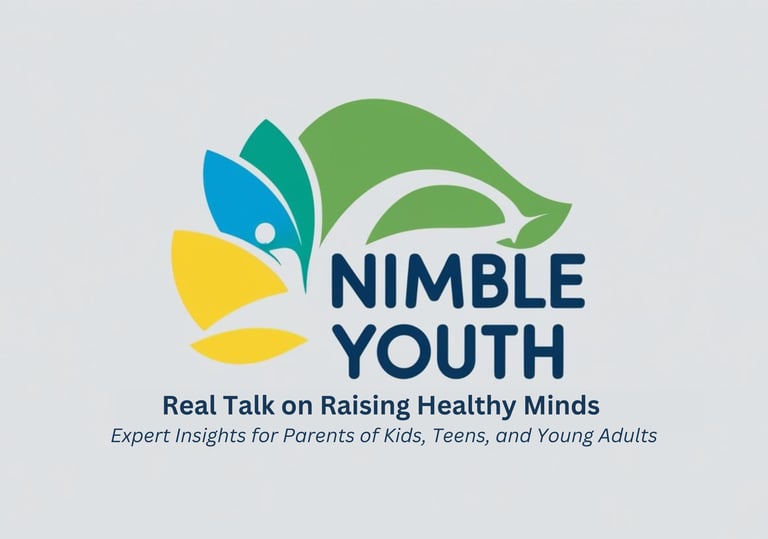Episode Seventeen: When Tantrums Go Too Far: Understanding Disruptive Mood Dysregulation Disorder (DMDD)
Chronic irritability, frequent temper outbursts, and emotional volatility—these behaviors may go far beyond typical childhood tantrums. In this episode, we unpack Disruptive Mood Dysregulation Disorder (DMDD), a relatively new but critical diagnosis that helps explain persistent mood and behavior challenges in some children and adolescents.
M. Butterman
8/3/20251 min read


🎙️ Episode 17: “When Tantrums Go Too Far: Understanding Disruptive Mood Dysregulation Disorder (DMDD)”
Host: Matt Butterman
Guest: Dr. Gretchen Hoyle, MD, Pediatrician
Duration: ~35 minutes
Episode Summary:
Chronic irritability, frequent temper outbursts, and emotional volatility—these behaviors may go far beyond typical childhood tantrums. In this episode, host Matt Butterman is joined by pediatrician Dr. Gretchen Hoyle to unpack Disruptive Mood Dysregulation Disorder (DMDD), a relatively new but critical diagnosis that helps explain persistent mood and behavior challenges in some children and adolescents.
Dr. Hoyle explains what sets DMDD apart from ordinary moodiness and how it's different from disorders like bipolar disorder. She explores potential causes, including genetics, trauma, and neurodevelopmental factors, and discusses evidence-based treatment approaches ranging from cognitive behavioral therapy (CBT) and parent management training to medications such as atypical antipsychotics in severe cases. The episode also emphasizes the importance of early diagnosis, school accommodations (like 504 plans), and the effectiveness of collaborative care models in managing this complex disorder.
Key Topics Covered:
What defines DMDD and how it differs from bipolar disorder
Risk factors, including trauma, stress, and neurological dysregulation
Why emotional regulation is at the core of DMDD
Treatment strategies: CBT, parent training, medication, and trauma-informed care
How schools and families can collaborate through 504 plans and support systems
The role of pediatricians and behavioral health teams in identifying and managing DMDD
Three Takeaway Facts:
DMDD affects approximately 2–5% of children and adolescents, with symptoms typically appearing before age 10.
Unlike bipolar disorder, DMDD is chronic and non-episodic, characterized by persistent irritability and frequent behavioral outbursts.
With early intervention and a multi-pronged approach, many children with DMDD experience significant improvements over time.
Resources & Links:
NIMH: Disruptive Mood Dysregulation Disorder Overview
AACAP: Facts for Families on DMDD
Visit our website for full episode archives and additional resources: www.nimbleyouthpodcast.com
About Our Guest:
Dr. Gretchen Hoyle is a board-certified pediatrician with over 25 years of clinical experience, specializing in pediatric mental and behavioral health. She is a regular guest on Nimble Youth and a passionate advocate for early intervention and integrated care.
© 2025. All rights reserved.


